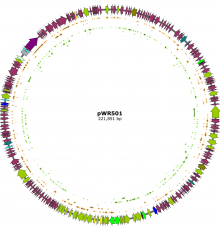Shigella flexneri

Shigella spp. are a leading cause of dysentery world-wide and estimated to be responsible for around 900,000 deaths each year, particularly among children in resource poor settings. The bacterium can enter non-phagocytic cells through the activity of its Type Three Secretion System (TTSS). It is also one of the few bacterial pathogen that can enter into and replicate within the cytosol of human cells. The group are interested in understanding the function of the TTSS, and how its activity are regulated by environmental signals. We have also initiated research into bacterial replication and survival within different cell types, at the single bacterial and cell level. The group collaborates with Philippe Sansonetti (Institut Pasteur), Professor Susan Lea (Sir William Dunn School) and Professor Nick Thomson (Sanger Centre).
Through the Stopenterics programme, we are attempting to use state of the art analysis of gene transcription and proteomics to identify novel protein vaccine antigens that will be broadly protective against Shigella spp.